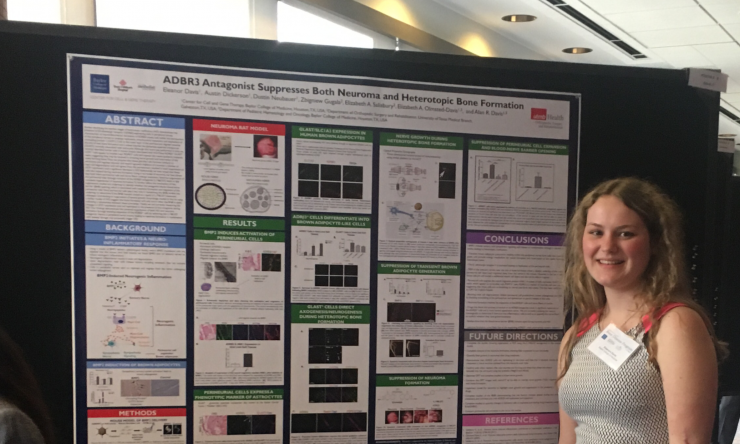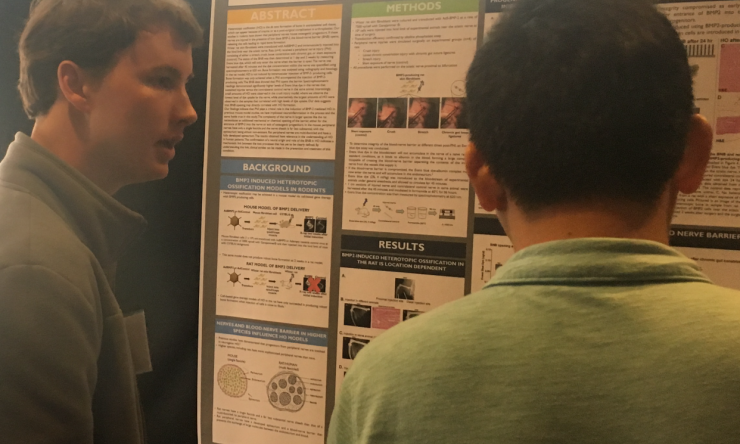About the Davis Lab
The Davis lab is a member of the Center for Cell and Gene Therapy at Baylor College of Medicine. Our lab has developed a cell-based gene therapy system using adenoviral vectors for the rapid induction of bone formation for clinical applications including both spinal fusion and fracture repair, as well as recently for the study of the molecular mechanisms of heterotopic ossification.
Heterotopic ossification (HO) is the de novo formation of bone at extraskeletal sites. This abnormal bone growth can be found clinically as a result of trauma or as a complication after surgeries such as arthroplasties. It is also found in rare diseases such as Fibrodysplasia ossificans progressiva (FOP). By applying our cell-based gene therapy system to induce HO, we hope to analyze exactly how this abnormal process works and to further characterize the progenitor cells that contribute to the process and their origin.
Recent publications are among a body of emerging evidence that suggests a neurogenic aspect to BMP2-induced heterotopic ossification. Recent projects have focused on defining the role of peripheral nerve injury, neuroinflammation, and the immune system among other factors in HO.

Chemical Suppression of Neuroma Formation and its Associated Effect on HO
Our lab is investigating how the suppression of this neuroinflammatory process affects the bone formation typically achieved in our model of BMP2-induced heterotopic ossification.

Role of Peripheral Nerve Injury and Blood-Nerve Barrier in HO
We are currently investigating whether a mechanical or chemical opening of this barrier contributes to the formation of bone in BMP2-induced neurogenic heterotopic ossification.
Viral Vectors
Since 1999, we also provide our expertise in all current vector systems by producing viral vectors for use in basic research. We offer services for all investigators all around the world. Please visit the Vector Development Laboratory website to learn more about Adenovirus, Lentivirus and Retrovirus production and see all the services we provide!
Lab Publications
Contact Us
Alan R. Davis
ardavis@bcm.edu
(713) 798-1237
Elizabeth A. Olmsted-Davis
edavis@bcm.edu
(713) 798-1253
Lab Phone: (713) 798-1238
Lab Fax: (713) 798-1230








